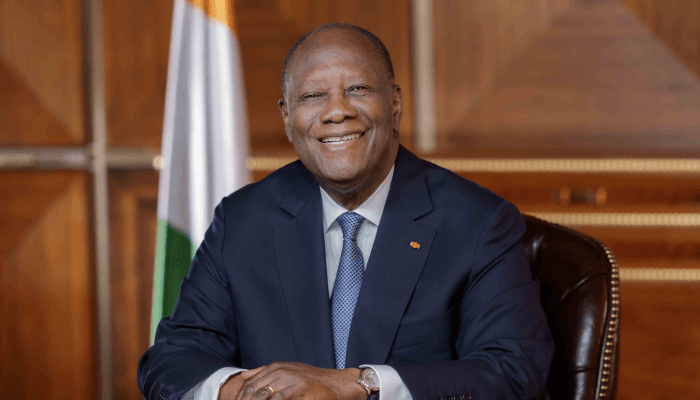Ivory Coast’s President Alassane Ouattara has secured a fourth term in an election that was less a democratic contest and more a preordained coronation, after his most significant rivals were barred from the ballot and the opposition denounced the process as a “civilian coup d’etat.”
The 83-year-old leader’s landslide victory—claiming 89.8% of the vote—reveals more about the systematic exclusion of competition than his popular appeal. With a voter turnout of just 50.1%, the result underscores a nation deeply divided and disillusioned by a political process engineered to guarantee one outcome.
The election’s outcome was sealed not at the ballot box, but in the eligibility rulings that disqualified former President Laurent Gbagbo and former Credit Suisse CEO Tidjane Thiam. In the absence of any formidable challengers, businessman Jeal-Louis Billon secured a distant 3.09% of the vote.
This is the second consecutive election boycotted by the opposition, following Ouattara’s controversial decision to run for a third term in 2020. His ability to cling to power hinges on a 2016 constitutional overhaul that critics argue was designed specifically to reset his term limits and extend his 14-year rule indefinitely.

Why It Matters
Alassane Ouattara’s fourth term is a textbook case of democratic backsliding, masquerading as an electoral victory. By legally sidelining his most potent challengers, he has not won a mandate; he has engineered a political vacuum where his reign is the only option.
The opposition’s label of a “civilian coup” is painfully accurate. This is the seizure of power through legalistic maneuvering rather than military force, but the effect is the same: the silencing of political alternatives and the erosion of democratic choice. The low voter turnout is the most telling result of all—it is the sound of a citizenry losing faith in the very possibility of change

















